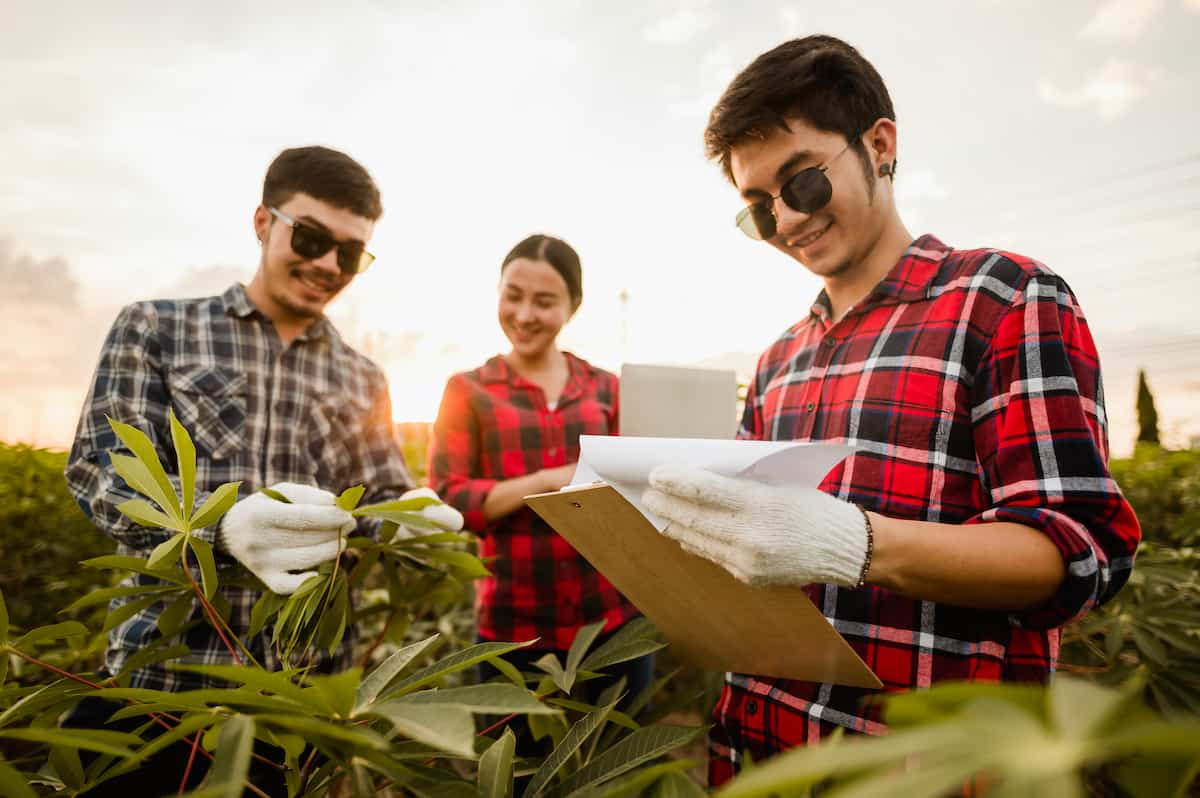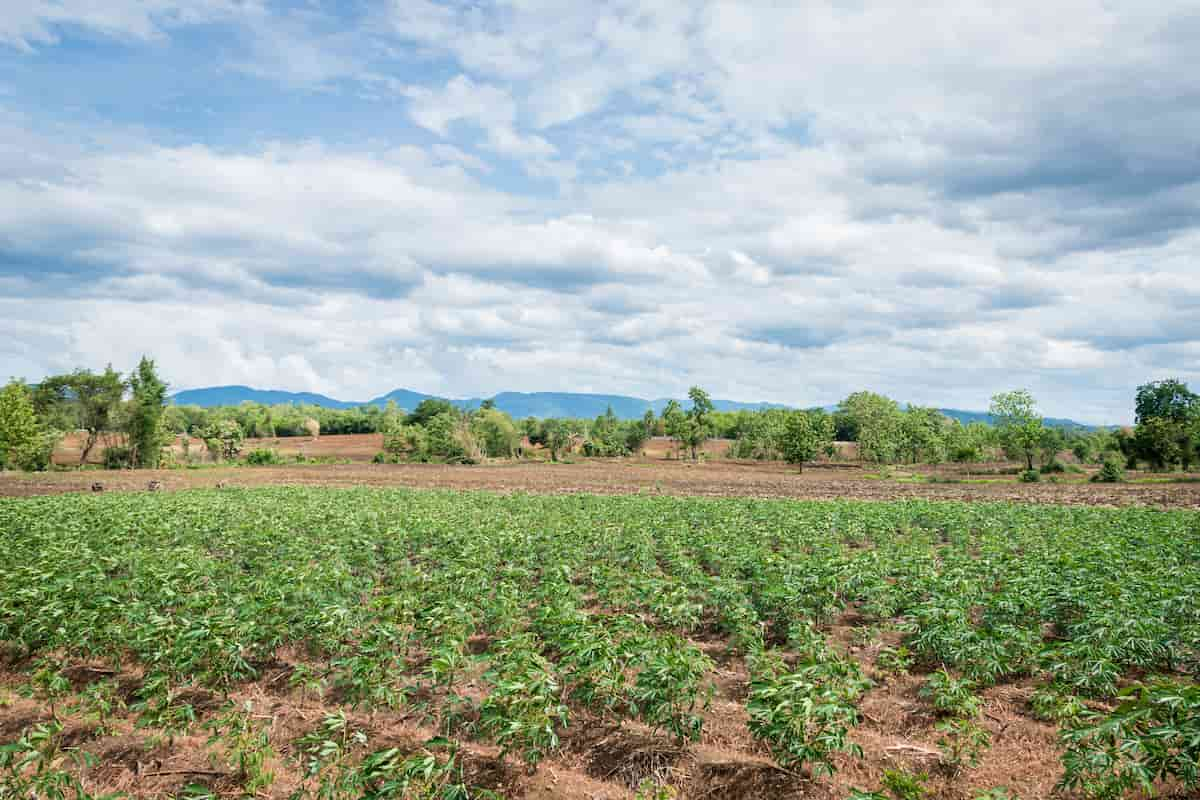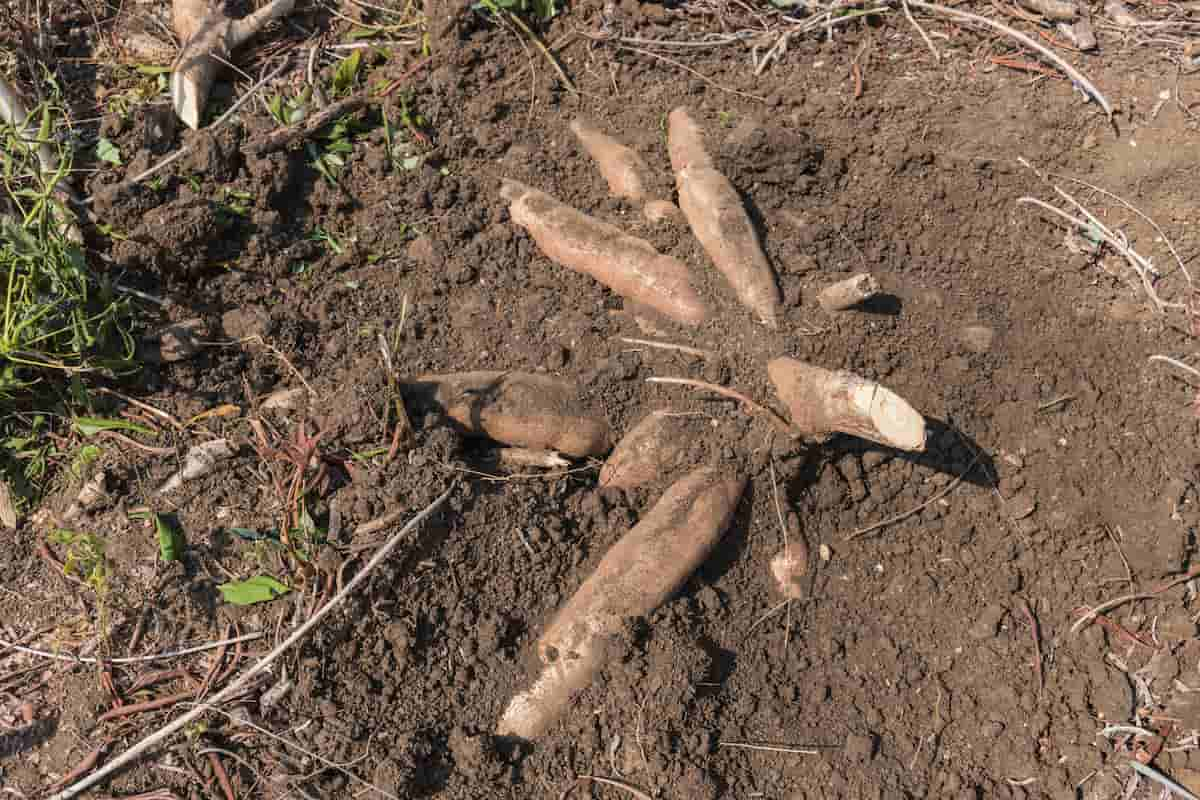The Cassava Cultivation Project is a grassroots project to promote cassava cultivation. This tropical crop is a staple food for millions in Africa, Asia, and Latin America. Cassava is a drought-resistant and diverse crop that grows well in poor soils, making it an essential source of food supply and income for smallholder farmers in many developing nations.

The project seeks to increase cassava productivity and yield by adopting better agricultural practices, such as using high-yielding varieties, better planting methods, and applying suitable fertilizers and pesticides. To raise the value of cassava for smallholder farmers, it also aims to support the processing and marketing of cassava products like flour, starch, and ethanol. The target countries’ governments, businesses, and civil society organizations are working together on the cassava cultivation project.
It is supported by foreign development agencies and carried out by regional groups with vast agricultural development experience. The initiative has established high production and productivity goals for cassava. For instance, in Nigeria, the initiative seeks to double the income of cassava farmers while increasing cassava production from the current level of 54 million tons to 150 million tons by 2025. Other project participants have similar goals that have been established for them.
The Cassava Cultivation Project can significantly impact the community’s access to nutrition and the livelihoods of smallholder farmers in the target nations. The project is assisting in creating a more sustainable and inclusive agricultural sector that benefits all, but especially the most vulnerable members of society, by promoting the cultivation and processing of cassava.
1 Acre Cassava Cultivation Project Report
Market and Demand for Cassava Cultivation
Cassava is an important crop grown worldwide in tropical and subtropical areas. The crop produces ethanol and starch and feeds millions of humans. Due to population growth, urbanization, and rising demand for food, feed, and industrial uses, cassava demand is rising worldwide. According to the FAO, global cassava production increased to 287 million tons in 2020 from 269 million tons in 2010. Nigeria, Thailand, and Indonesia produce most cassava.
In Southeast Asia and Africa, cassava ethanol has grown in popularity. Ethanol, a renewable fuel and energy supply, can be made from cassava. Cassava flour also makes paper and textiles. Small-scale producers and processors in many developing nations compete in the cassava market. Improved storage and processing facilities and cassava product quality are key issues.
To meet the growing demand for cassava, there is a need for increased investment in research and development, as well as in infrastructure and market development. The Cassava Cultivation Project can boost the cassava market. The project can help cassava farmers and processors increase productivity and competitiveness by promoting better agricultural practices and value-added products. This can meet domestic and foreign cassava demand and strengthen rural economies.
Best Cassava High Yield Variety for Cassava Cultivation
- TME 419 – Developed in Nigeria, TME 419 is a high-yielding cassava variety resistant to the devastating cassava mosaic disease.
- Rayong 9 – Developed in Thailand, Rayong 9 is a high-yielding cassava resistant to pests and diseases.
- M Col 22 – Developed in Colombia, M Col 22 is a high-yielding cassava resistant to root-knot nematodes.
- KU50 – Developed in Kenya, KU50 is a high-yielding cassava variety resistant to cassava mosaic disease and brown streak disease.
- KU2 – Another high-yielding cassava variety developed in Kenya, KU2 is resistant to both cassava mosaic and brown streak diseases.
- Col 113 – Developed in Colombia, Col 113 is a high-yielding cassava resistant to root-knot nematodes.
- MMe 280 – Developed in Ghana, MMe 280 is a high-yielding cassava variety resistant to cassava mosaic disease and brown streak disease.
In case you missed it: 1 Acre Sorghum Cultivation Project Report in India: Production Cost and Profit

Cost of Cultivation for 1-Acre Cassava Cultivation
Cassava is an important agricultural activity worldwide in many tropical and subtropical regions. The cost of cultivating cassava varies depending on a range of factors, such as the quality of the land, the availability of labor and inputs, and the level of mechanization.
- Land Clearing: The cost of clearing one acre for cassava cultivation is $6.12.
- Planting: The cost of planting cassava on one acre of land is $3.50.
- Weeding: The cost of weeding cassava for the first and second times is $2.50 and $1.40, respectively.
- Harvesting: The cost of harvesting cassava for the first, second, and third times is $2.52, $0.82, and $0.70 respectively.
- Fertilizer: The cost of fertilizing cassava is $7.50 per acre.
- Herbicides and pesticides: The cost of herbicides and pesticides for controlling pests and diseases in cassava cultivation is $2.22 and $1.70 respectively.
- Transportation cost: The cost of transporting cassava to the Market is $1.25 per acre.
- Labor: The labor cost for cassava cultivation is $85.00 per acre.
- Equipment Depreciation: The cost of equipment depreciation is $7.55 per acre.
- Total cost = Land clearing + Planting + Weeding + Harvesting + Fertilizer + Herbicides and pesticides + Transportation cost + Labor + Equipment depreciation
- Total cost = $119.06, But it Ranage from $120- $200 based on different
Cassava cultivation costs vary based on several variables, including location, labor costs, and input availability. However, farmers may increase their cassava farming profitability by implementing best practices and cutting expenditures.
Total Returns from 1 Acre Cassava Cultivation
Farmers can expect a yield of 5 to 7.5 tons of cassava per acre. The average yield of cassava per acre can vary depending on several factors, such as soil type, weather conditions, and the variety of cassava planted.
The average price of cassava per tonne in the Market can also vary depending on several factors, such as location and demand. The average price for a tonne is $600.00- $800.00, depending on variety and Market.
- Total yield = 6 tons/acre
- Total revenue = (Total yield) x (Price per tonne)
- = 6 x $600 = $3,600. And Revenue ranges from $3,500- $5,000
It’s important to remember that these numbers can vary significantly based on many variables, including local rivalry, market demand, and the caliber of the produce.
Net Profit from 1-Acre Cassava Cultivation
To calculate the net profit, we need to deduct the total cost of cultivation from the Total Revenue. Therefore, the net profit from one acre of cassava cultivation is calculated as follows:
- Net profit = Total Revenue – Total cost
- Net profit = $3,600 – $119.06
- Net profit = $3,480.94
So the net profit from 1-acre cassava cultivation is $3,480.94. It May range from $3,500- $4,800. However, it’s important to note that the net profit may vary based on several variables, including market demand and production costs.
In case you missed it: 1 Acre Black Gram Cultivation Project Report in India: Production Cost and profit

Conclusion
Cassava cultivation can be a profitable venture with proper planning and implementation of best practices. With a production cost ranging from $120-$200 per acre and a potential revenue of $3,500-$5,000, it is a promising business opportunity worth considering.
- Ultimate Guide to Ossabaw Island Hog: Breeding, Raising, Diet, and Care
- Ultimate Guide to Juliana Pig: Raising Facts, Size, Diet, Care, and Lifespan
- Raising Lleyn Sheep: Disadvantages, Price, Uses, Characteristics, and Care
- Ultimate Guide to Meishan Pig: Breed Facts, Breeding, Raising, and Care
- Ultimate Guide to Teacup Pigs: Raising, Diet, Lifespan, Cost, and Care
- Guide to Raising Poll Dorset Sheep: Facts, Profile, Characteristics, Uses, and Care
- Ultimate Guide to Bighorn Sheep: Characteristics, Diet, Lifespan, Breeding, and Lifecycle
- Ultimate Guide to Raising Katahdin Sheep: Farming Facts, Breed Profile, Uses, and Care
- Ultimate Guide to Raising Oreo Cows: Belted Galloways Farming Facts, Profile, Uses, and Care